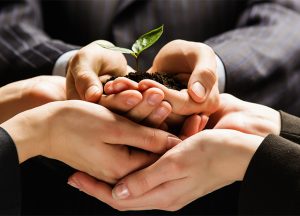
It’s no secret that many incubation programmes and funding institutions are looking to back “bankable” entrepreneurs. There are not many incubators or investors who are willing to invest in startup business based only on the potential of an entrepreneur and what they can do for the greater community.
Since coming into the scene in 2010, Awethu Projects has been doing just that.
Awethu Projects is a social entrepreneurship programme in which businesses are not only measured by performance in profit and return, but aims to develop high-impact entrepreneurs that can grow SMEs, create jobs and act as role models in their communities.
The project was founded by Yusuf Randera-Rees in 2010, a South African graduate of Harvard and Oxford, passionate about correcting the social inequalities in the country.
Target market
The project works with young entrepreneurs from under-resourced backgrounds, mostly from townships in Johannesburg. These are entrepreneurs that have the talent and work ethic to compete with the best in the world, but are constrained by lack of physical, financial and social resources.
This is done through their R64 million commercial investment fund in partnership with the Small Enterprise Finance Agency (Sefa). The fund supports businesses valued between R1-million and R5-million.
How does Awethu incubation and works
There is a 7-year investment term. For the first two years of the programme, entrepreneurs are overseen by an Awethu senior manager. The managers are skilled and experienced individuals in different business spheres, from finance to management.
During the first two-years of incubation period, entrepreneurs receive formal business training from the Gordon Institute of Business Science (GIBS). They also receive start-up capital, accommodation, a stipend, office space, technology and admin support.
Awethu is always a 50:50 equity partners in all sAYF businesses.
Awethu investment funding
The sAYF fund targets businesses that can generate a minimum R15000 monthly income and 30% annual growth rates.
Over the seven-year investment term, an entrepreneur in each portfolio business works towards earning a 50% equity stake in the business.
Who qualifies?
The only criterion is for young South Africans who show entrepreneurial promise through programme’s talent-identification process.
Applicants go through a rigorous battery of both practical and psychometric assessments. Entrepreneurs, however don’t need business experience, educational attainment, work experience, or even for investment-ready ideas.
Awethu has funded and incubated businesses ranging from landscaping, transportation, mobile restaurant, recycling, hair importing, to an athletics club.
Video: Yusuf Randera-Rees speakingg about the Awethu Project at TEDx Stellenbosch, 2010
https://www.youtube.com/watch?feature=player_embedded&v=VGHeqtI3U-w


